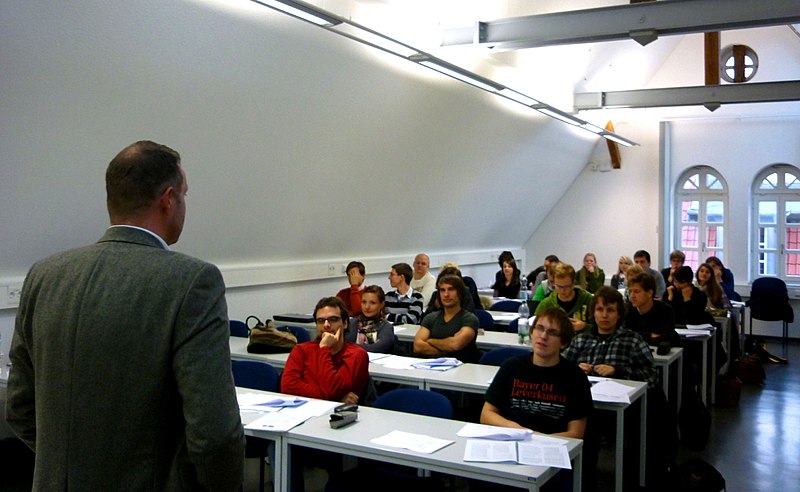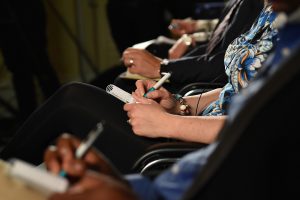Strategies for Listening Well

As speaking begins, focus on individual portions of the message, rather than examining the overall message itself. Identify main ideas and supporting points. Listen for oral citations that often begin with the phrase “according to…” and evaluate the credibility of the statement. Listen analytically when piecing together all of the components of the speech individually. Consider paraphrasing the speaker’s message internally. The average person may speak conversationally at a rate of about 150 words per minute, but the average listener possesses the capability to think at the much faster rate of around 400–500 words per minute. Taking this into consideration, listeners can use “down time” in between words and sentences to paraphrase speakers’ points into their own words, adding to their ability to retain and understand them.

Kinesthetic or tactile learners find taking notes during the speech provides a valuable tool for retaining information, even if they never refer back to those notes again. The physical action of writing the notes helps the brain register and record the consumed information. On the other hand, a visual learner who needs to see the speaker during the presentation may find taking notes detrimental to their ability to listen.
One of the hardest things to do while listening involves resisting distractions. Auditory distractions include a loud fan or buzzing noise, people talking loudly in the hallway, or someone sitting nearby with a cold and the sniffles. Visual distractions may consist of a compelling visual aid left up by the previous speaker, someone with a visually striking outfit or item of clothing seated nearby, or a speaker who wears clothing with a distracting message emblazoned across the front. Physical distractions include hunger, leg cramps, a headache, sinus pressure, or fluctuations in temperature, not to mention the worst distraction of all: a vibrating cell phone! Lastly, mental or internal distractions could impair the ability to listen. To resist these distractions requires self-discipline and careful preparation before the speech begins. Turn off the phone. Do not arrive to the speech hungry. Set aside distracting thoughts. Use the moment to focus on the art of paying attention on purpose.
Give each and every speaker the benefit of the doubt.
Note to Self
Keep emotions in check. It is highly likely that a speaker will say something at some point that will evoke a question, and this could easily lead to temptation to dwell on that question, allowing it to ruminate, or circle round and round in the mind. If this happens, consider writing the point or question down to save it for later. Some speakers skillfully evoke questions that they end up answering later in the speech. This technique requires a lot of practice to perform successfully, but effectively keeps audiences listening closely for the answers.

